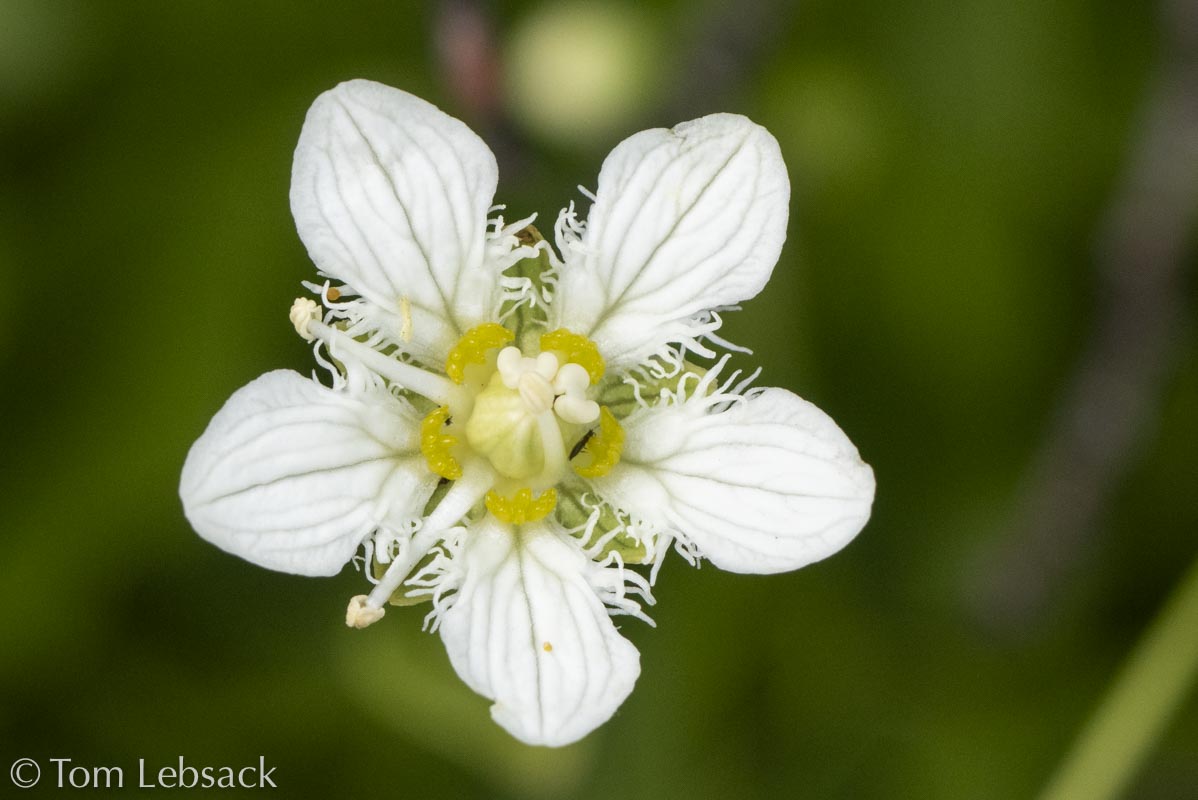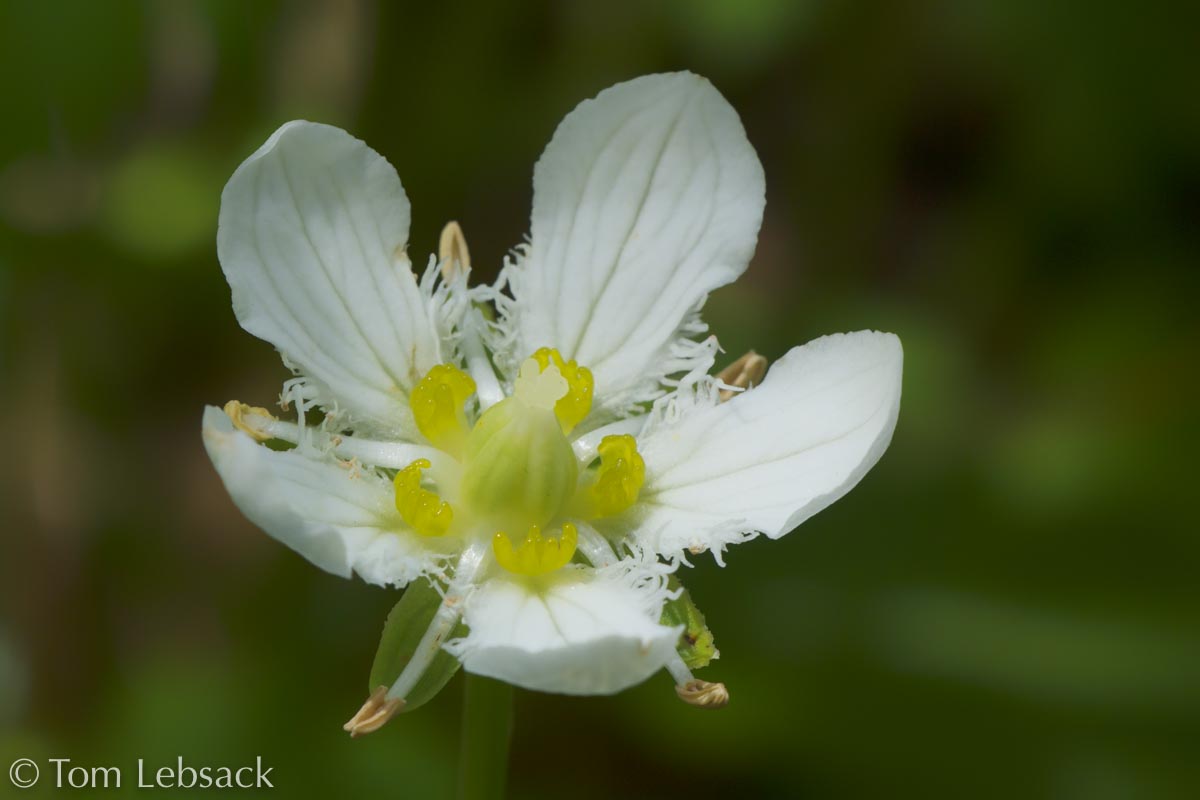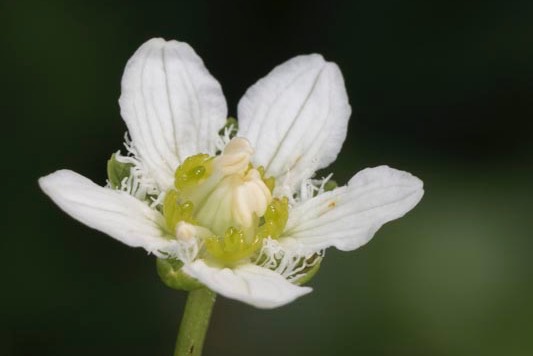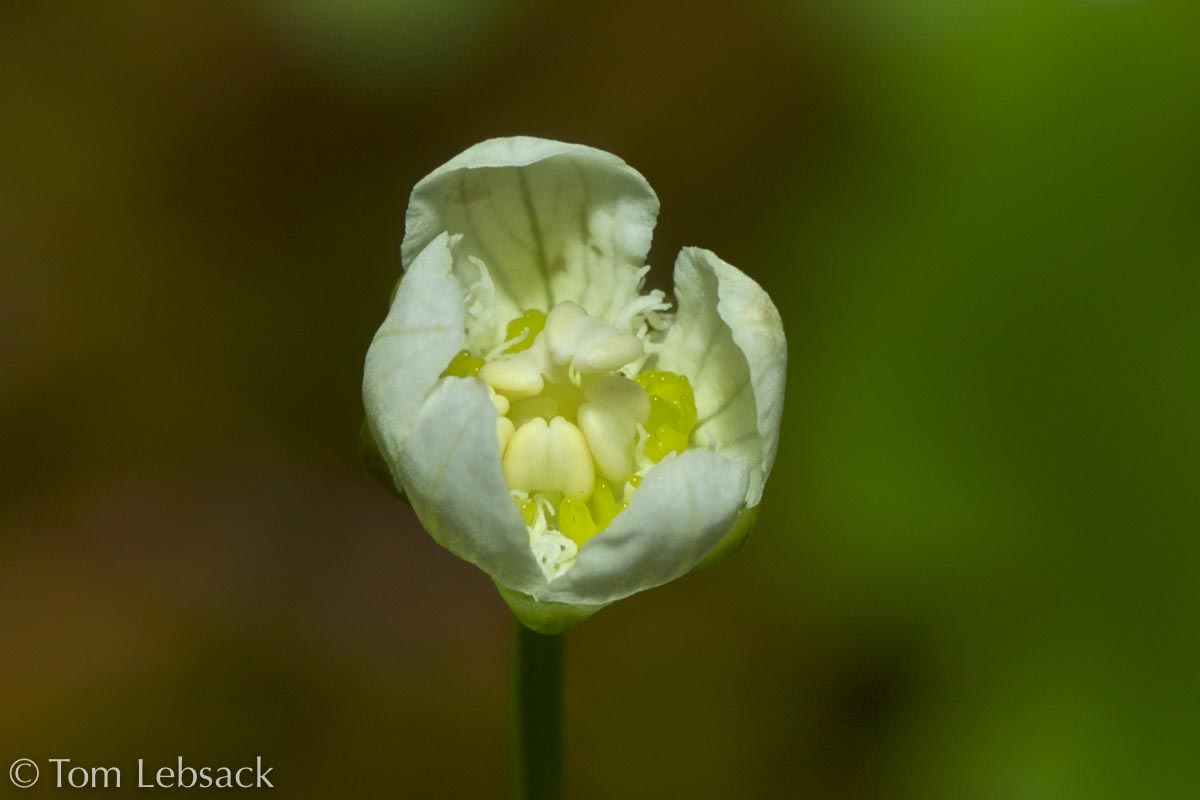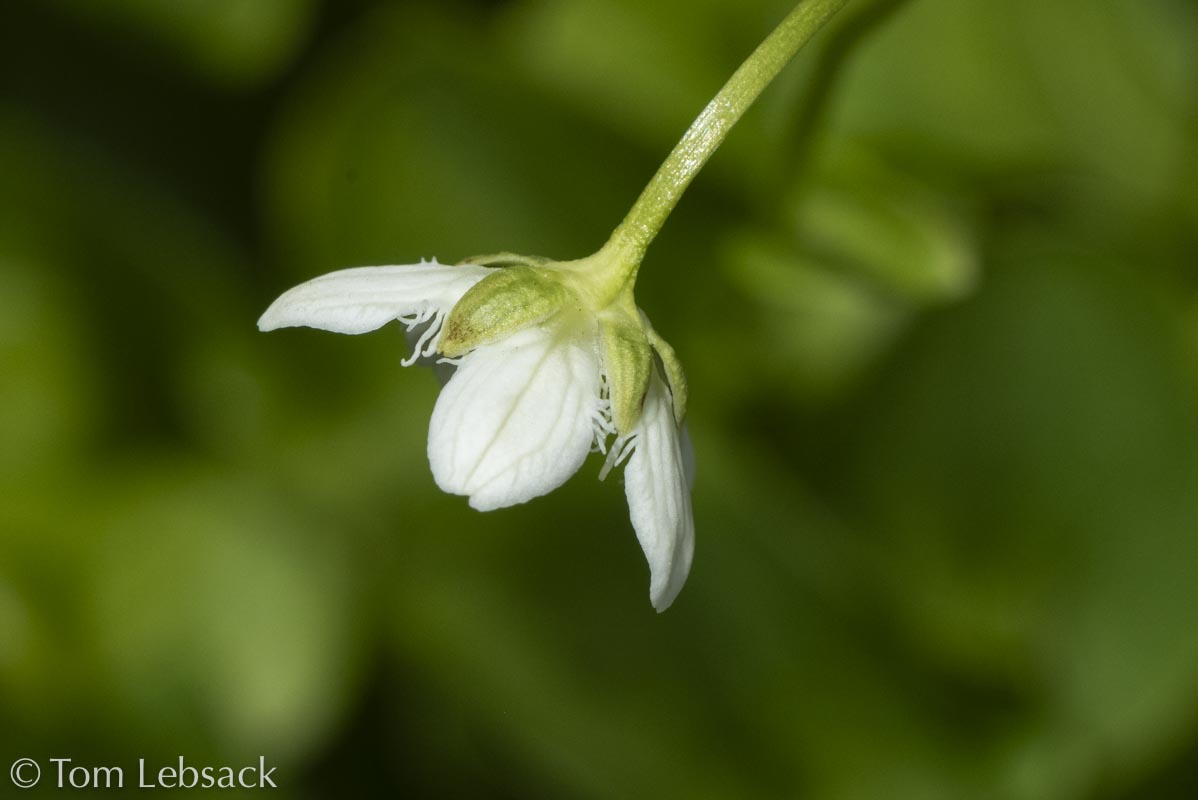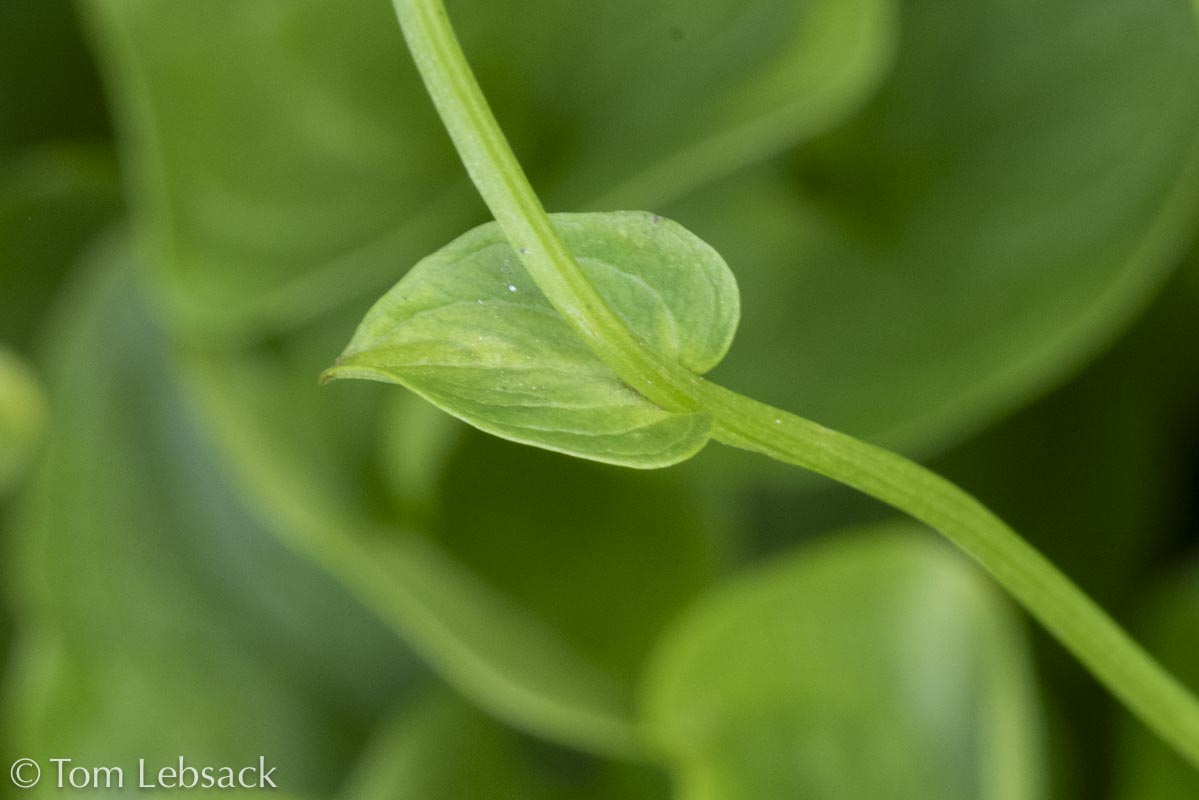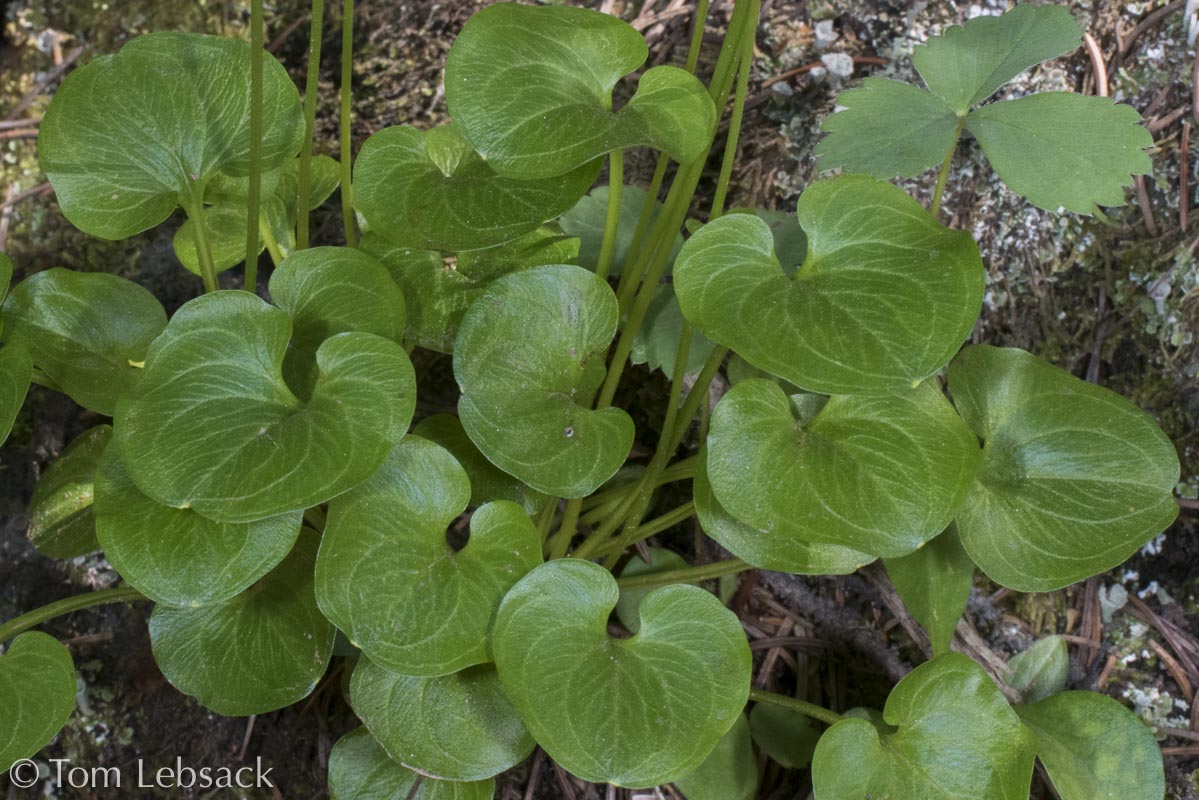(Grass of Parnassus)
| Scientific Name | Parnassia fimbriata | USDA PLANTS Symbol | PAFI3 |
| Common Name | Grass of Parnassus | ITIS Taxonomic Serial No. | 24209 |
| Family | Celastraceae (Staff-tree), formerly Parnassiaceae | SEINet Reference |
Click Here |
| Description |
Life zones and habitat: Foothills to alpine (6500 to 13500 ft.); boggy areas, streamsides, wetlands, moist meadows. Plant: Erect perennial with weak stems, 6 to 16 inches tall. Leaves: Kidney-shaped to round basal leaves 3/4 to 1-1/2 inch across with petioles 1 to 6 inches long; small bract-like leaf midway on stem. Inflorescence: Solitary blossoms on long peduncles; white saucer-shaped flowers with 5 petals fringed in the lower portion and 5 sepals below; 5 long fertile stamens with cream-tan anthers and 5 short, greenish-yellow sterile stamens (staminodes) with multiple small branches topped by small, green to yellow-brown glands; protruding green pistil. Bloom Period: July to September. References: "Flora of Colorado" by Jennifer Ackerfield, "Wildflowers of the Rocky Mountains" by Carl Schreier and American Southwest. |
BONAP Distribution Map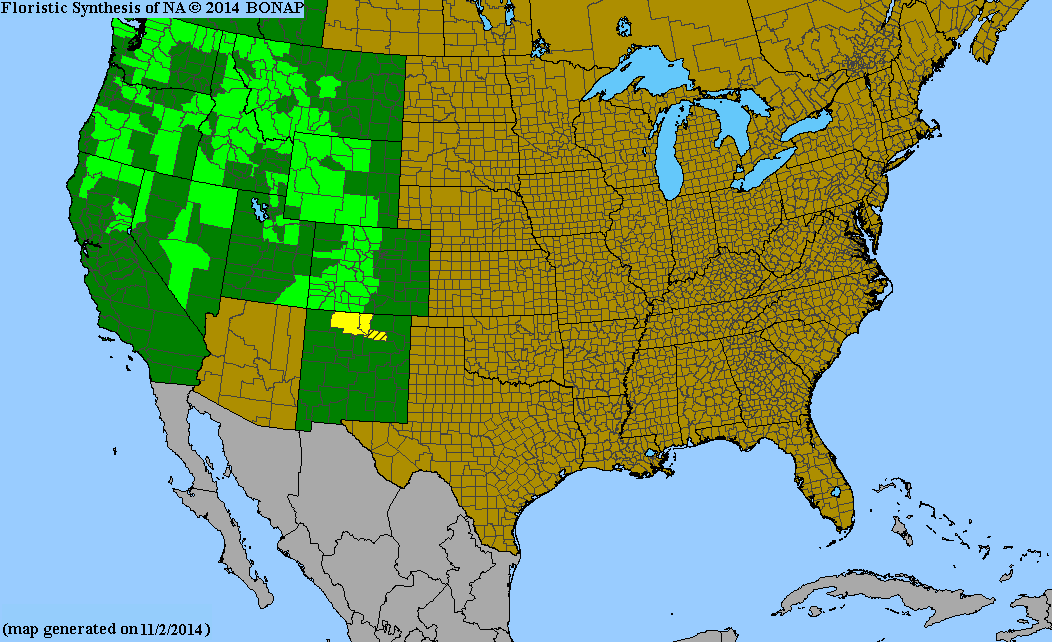 Map Color Key |
Colorado Status: Native |
© Tom Lebsack 2026
Banner photo: Castilleja rhexifolia and a brewing storm over the San Juan Mountains
I try to provide accurate, up-to-date, and relevant information, but cannot guarantee the completeness or accuracy of any information presented on this website. I use authoritative references to insure high standards of accuracy and review and update the information frequently.
